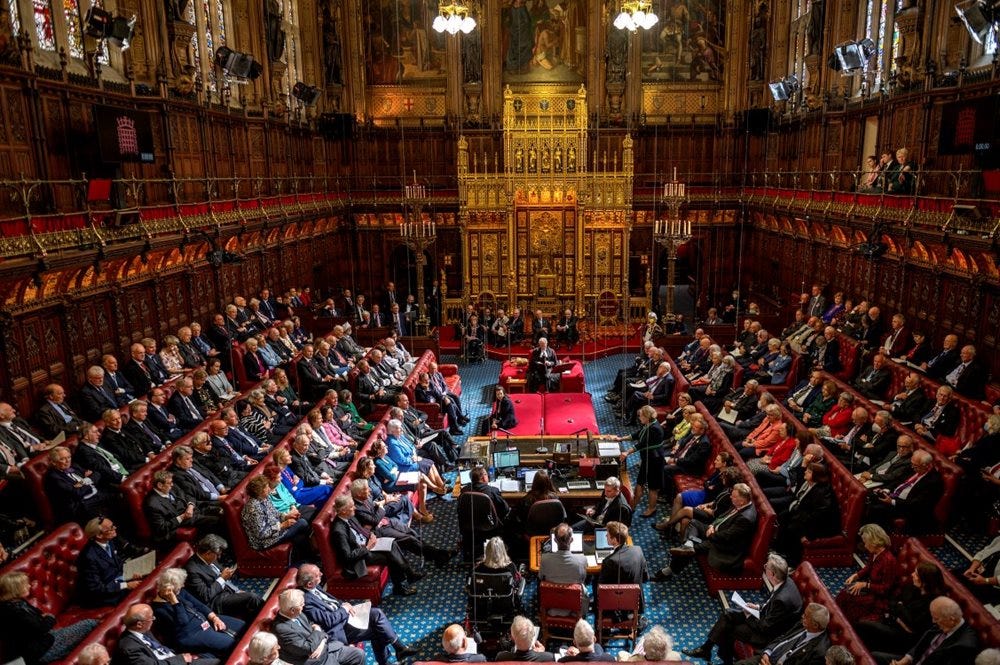The UK's Electric Vehicle Inquiry: A Look into the Road to 2030
The House of Lords' inquiry assessing the feasibility of the UK's combustion engine phase-out goals and its potential impacts on the EV transition - will the correct answers emerge?
The transition to electric vehicles (EVs) is a hot topic in the UK, especially with the government's ambitious targets to ban the sale of new petrol and diesel cars by 2030, and hybrids by 2035. The House of Lords has recently launched an inquiry into electric vehicles, led by Baroness Kate Parminter, to understand the barriers and challenges in achieving these goals. This blog post delves into the key aspects of the inquiry and what it means for the future of sustainable transportation in the UK.
The Scope of the Inquiry
Feasibility of the 2030 and 2035 Bans
The inquiry aims to assess the practicality of the upcoming bans on traditional combustion engines. It will explore the readiness of the industry, the availability of EVs, and the infrastructure needed to support this significant shift.
Government's Role in Promoting EVs
A central question of the inquiry is whether the government is doing enough to make electric vehicles affordable and accessible to the average consumer. This includes evaluating incentives, subsidies, and public awareness campaigns.
Electric Vehicle Ranges
The inquiry will also investigate the adequacy of electric vehicle ranges, comparing the UK's offerings with other markets like China, where low-cost EVs are more prevalent.
Used Car Market and Depreciation
A detailed assessment of the used car market for electric vehicles is on the agenda, especially considering the recent plummet in the value of used EVs, such as the Tesla Model X losing nearly 30% of its value in just a year.
Charging Issues and Infrastructure
Charging remains a significant concern for potential EV owners. The inquiry will look into the challenges faced by both rural and urban residents, grid capacity concerns, and the opportunities and obstacles surrounding public charging networks.
The Importance of Public and Industry Input
Baroness Parminter emphasizes the need to hear from the public about their experiences with acquiring and using EVs in the UK. Industry insights, local authorities' perspectives, and input from those interested in decarbonising transport will be vital in shaping government policies.
Conclusion: A Collaborative Effort Towards a Greener Future
The House of Lords' inquiry into electric vehicles is a critical step in understanding the complex landscape of transitioning to sustainable mobility in the UK. It highlights the need for a collaborative effort between the government, industry, and consumers to overcome challenges and align with environmental goals.
The inquiry's findings will likely have far-reaching implications for the automotive industry, policymakers, and the general public. As the UK gears up to meet its 2030 and 2035 targets, this inquiry serves as a timely examination of the road ahead, ensuring that the shift to electric vehicles is not just a trend but a well-planned movement towards a greener future.
Read more about the inquiry on the UK Parliament's website
Our thoughts
What Could This Inquiry Mean for the Future of EVs in the UK?
The House of Lords' electric vehicle inquiry could have significant impacts on the trajectory of EV adoption and infrastructure development in the coming years.
If the inquiry concludes that the 2030 ICE ban is unrealistic, the government may face public pressure to revise or extend targets. This could slow momentum unless new policies emerge to incentivize voluntary EV uptake.
Conversely, a strong endorsement of the phase-out plans from the non-partisan Lords would reinforce the inevitability of the transition. Automakers and charging firms would have more confidence in investments.
The findings of the inquiry on topics like charging, affordability, and managing grid loads will likely shape government strategies and funding. Recommended policy actions could accelerate the rollout of chargers and subsidies to spur EV purchases.
By spotlighting consumer experiences and regional disparities, the inquiry may prompt innovations making EVs work better for diverse driving needs. Rural charging gaps could finally start to close.
While political winds will continue shifting, this inquiry's impartial, thorough analysis offers hope for bringing stability and purpose to the complex path ahead. If taken seriously, its outcomes could steer the UK towards electric mobility success.





blah blah blah...jokes all round to the EV feedless 🤣🤣🤣